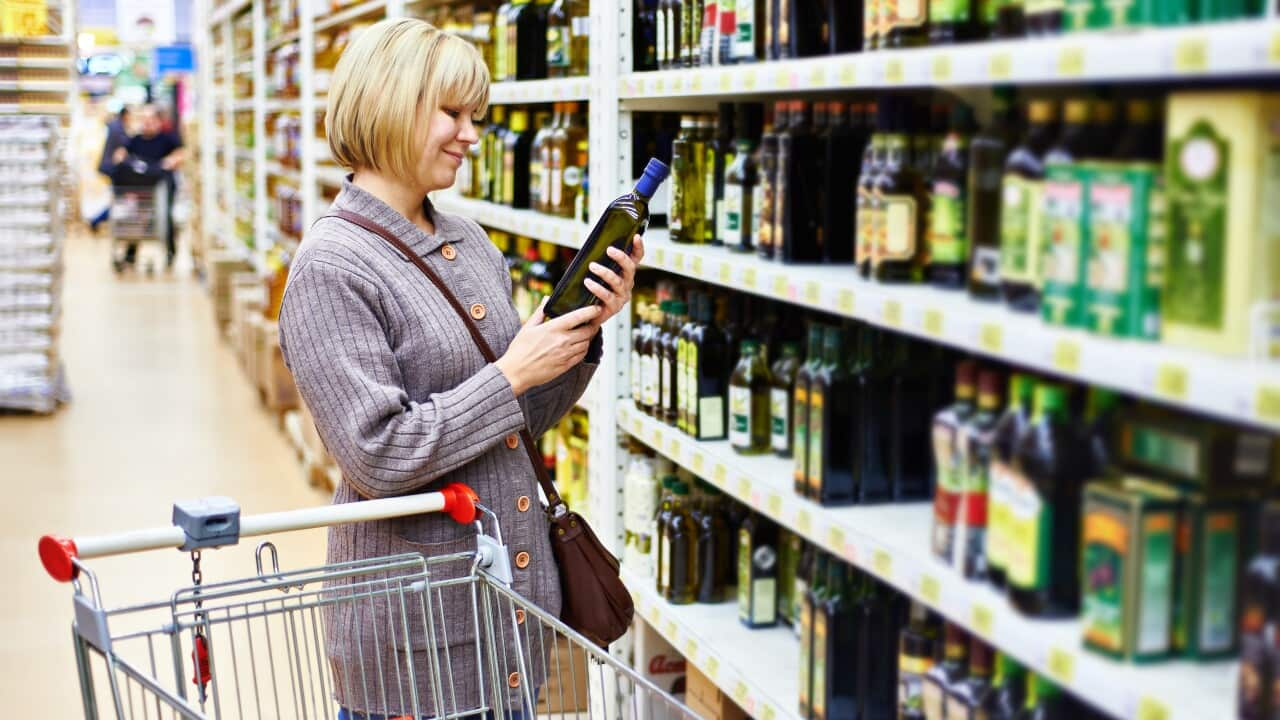Australians may need to ration their salad dressings if olive oil prices continue to climb.
The price of the liquid gold at the heart of the Mediterranean diet has soared since .
The pantry staple is being sold for up to $71 for a four-litre tin online from the major supermarkets or $27.50 for a 750ml bottle.
With Australians consuming twice the amount of olive oil that farmers locally produce, are we heading towards a shortage?
Why have olive oil prices skyrocketed?
Poor crop yields locally and abroad have driven up prices, according to Michael Southern, CEO of the Australian Olive Association.
“In Australia, we produce about enough olive oil to satisfy half of the domestic demand. The other half comes from imported olive oil, the majority [from] Spain,” he told SBS News.
The world’s top olive oil producers, including Spain, Italy and Greece, have produced significantly less fruit over the past two years due to extreme drought and repeated heatwaves.
Global production of olive oil fell from 3.42 million tonnes in the 2021-2022 season to 2.57 million tonnes in 2022-2023, International Olive Council figures show.
In Spain, which supplies half the world’s olive oil, prices have tripled as a result.
“Supply is tight and demand has kept up,” Southern said. “So prices have gone up. While supply is short, we’ll see higher prices,”
He said that Australian olive growers had also faced challenging conditions, with an “onslaught of pests and diseases” as well as poor weather affecting olive production.
“They grow very well in all sorts of climates, but to produce the olive fruit requires the ideal environment and climate essentially,” he said.
“This year happens to be a bit of an off year, so as a result, total production is down.”
What are the benefits of olive oil and will it get more expensive?
Extra virgin oil is high in good fats — monounsaturated fatty acids — and is rich in antioxidant compounds like vitamin E.
It is an essential part of the Mediterranean diet, which some studies have found can reduce symptoms of anxiety and stress and improve cardiovascular health.
While Southern doesn’t have a crystal ball, he predicts prices for olive oil “won’t go too much higher”.
“I think we’ve seen a bit of a plateau now with prices,” he said.
“We have heard that Spain has had some rain, which has helped their crops, so hopefully their production will increase a bit.”
He said customers don’t need to stock up on olive oil, with overseas gaps filled by Australia’s largest producers and enough fruit to keep on top of demand.
With additional reporting by Agence France-Presse.


